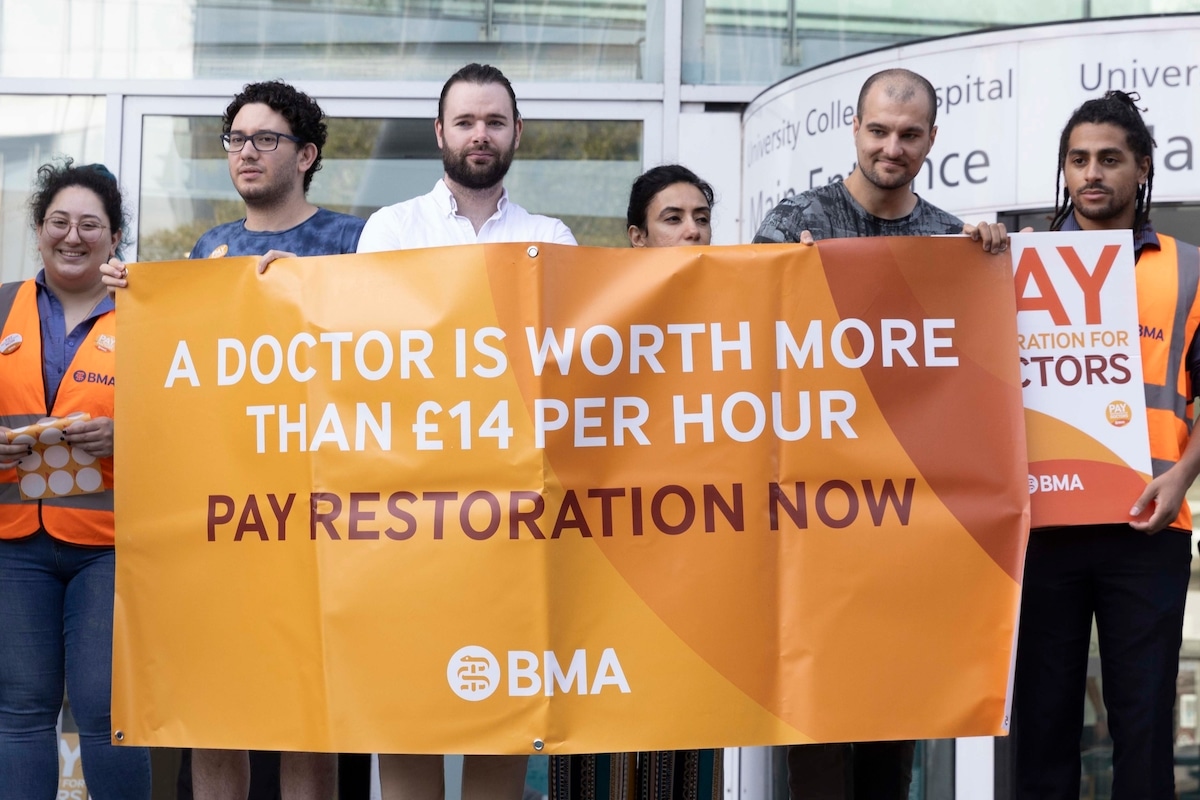After months of strikes and disrupted services, a breakthrough pay deal for junior doctors in England promises to end their long-running dispute with the government. Here’s the full story.
New Deal Reached
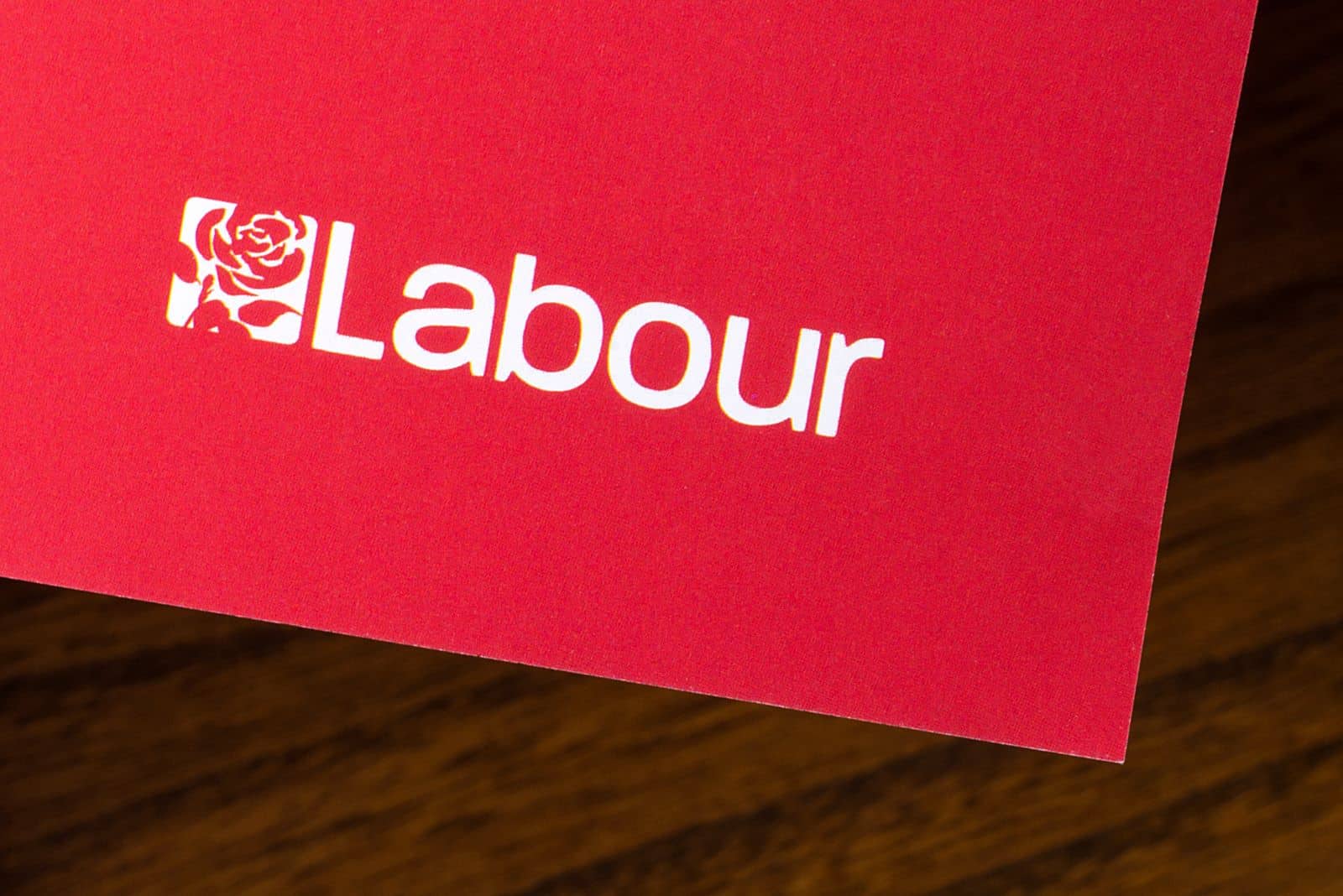
In a move that will likely stand as one of the first successes of the newly elected Labour government, junior doctors may finally see a significant pay increase following a new deal agreed with the government.
Months-Long Dispute

The deal follows a protracted, months-long dispute between the previous Conservative government and junior doctors in England, marked by numerous strikes, intense negotiations and walkouts.
22.3% Pay Rise

The tentative deal, which offers a 22.3% pay rise over two years, promises to end the industrial actions that have caused widespread disruptions in the National Health Service (NHS). The agreement between the British Medical Association (BMA) and the government is now subject to the junior doctors’ vote.
Strikes Since December 2022
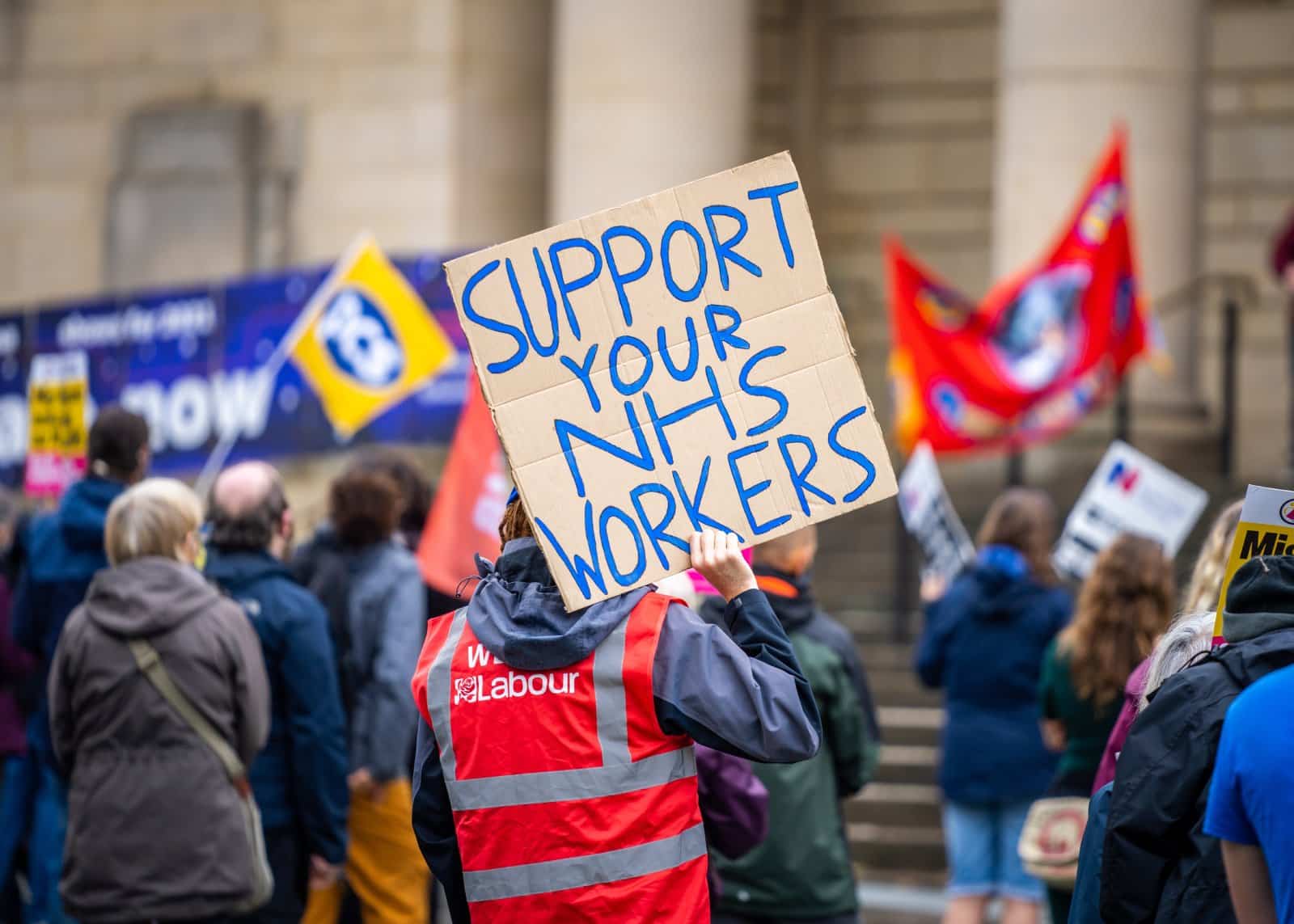
The conflict began in December 2022 when junior doctors, advocating for a 35% pay rise, began striking to address 15 years of below-inflation salary increases. Over this period, the NHS, already critically underfunded and stretched to breaking point, saw substantial disruptions, with 1.5 million appointments, procedures and operations postponed. The total cost of the strikes has been estimated at an eye-watering £3 billion.
Intensive Negotiations
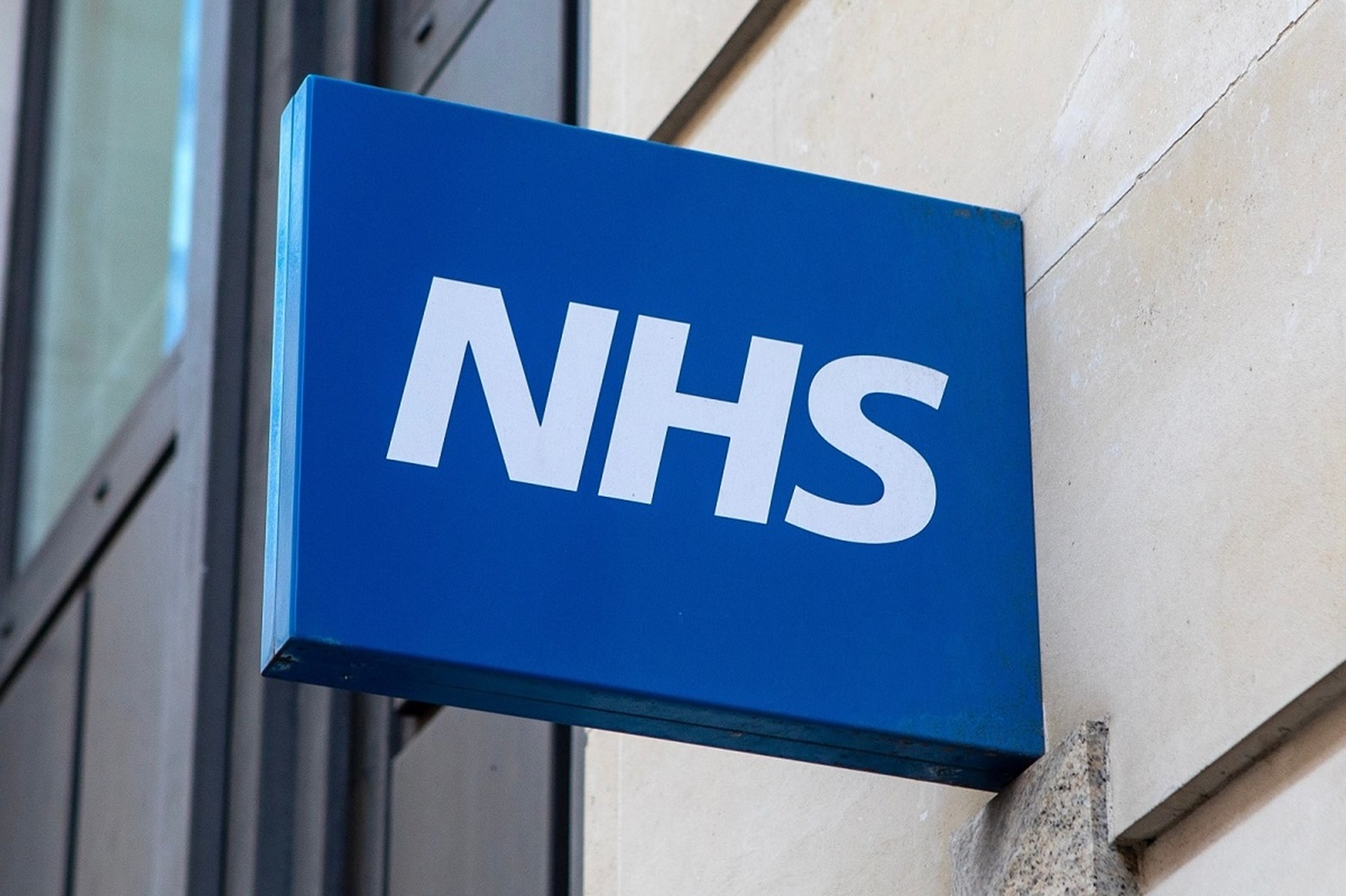
The breakthrough in negotiations was achieved after several rounds of intensive meetings between the government, represented by Health Secretary Wes Streeting, and the junior doctors’ committee led by Dr Vivek Trivedi and Dr Robert Laurenson.
No 35% Pay Increase
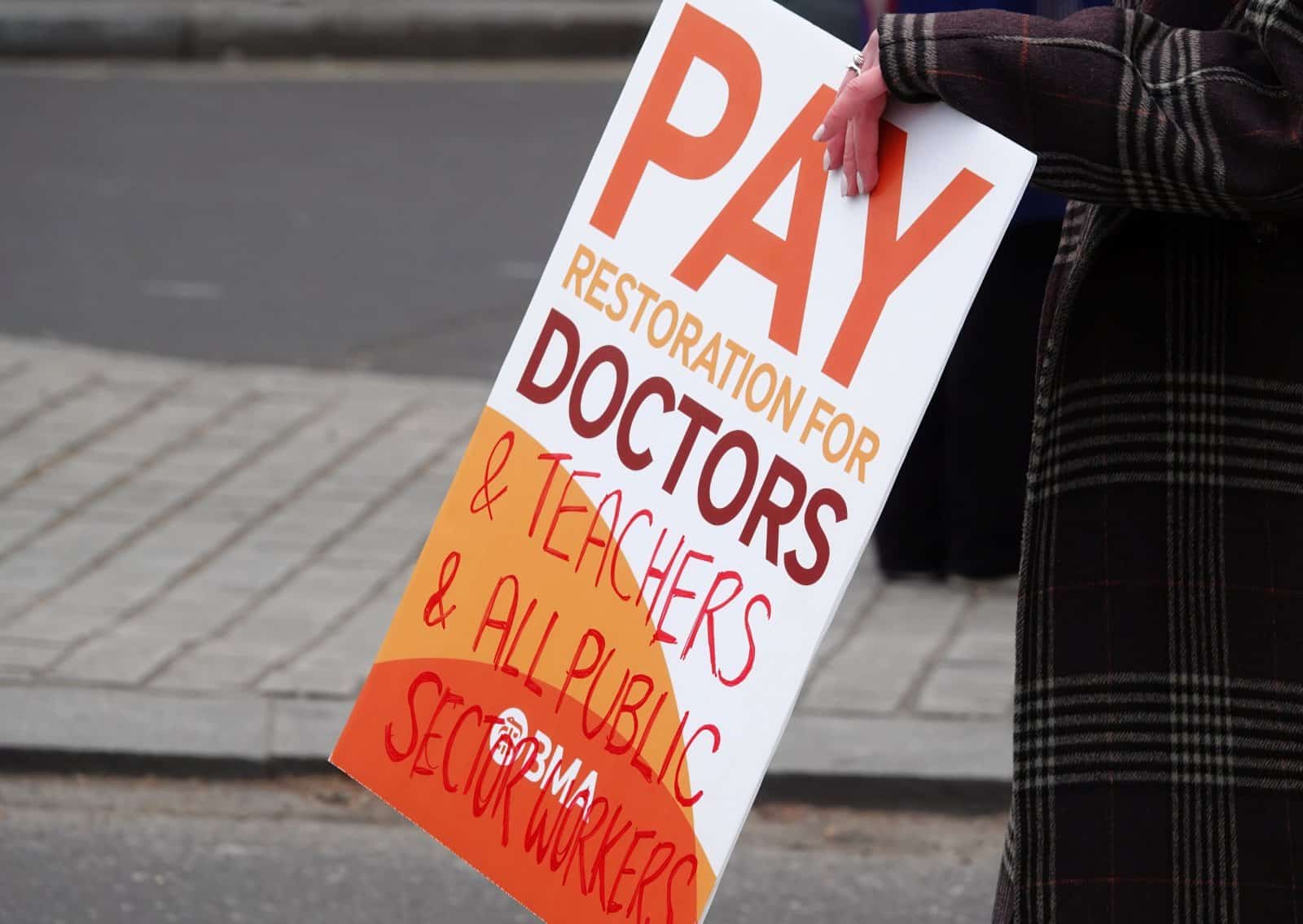
Going into negotiations, Streeting had ruled out the requested 35% pay increase ahead of the talks, arguing that “any trade union worth their salt” would return the following year with similar demands if he gave in to union pressure.
Fast Agreement Reached

The first face-to-face discussions took place on 9 July 2023, and a preliminary agreement was reached within a remarkably short 20 days. This speed at which an agreement was reached is all the more remarkable considering the sheer length of time the dispute lasted under the previous Conservative government.
Details of Pay Deal

The proposed pay deal includes an average rise of 22.3% spread over 2023-2024 and 2024-2025. This comprises a backdated 4.05% increase for 2023-2024, an 8.1% to 10.3% rise, and an additional 6% increase for 2024-2025, supplemented by a £1,000 payment.
Significant Pay Restoration

The cumulative effect of these increments represents a substantial step towards pay restoration for junior doctors, who make up almost half of the NHS workforce.
Government’s Commitment
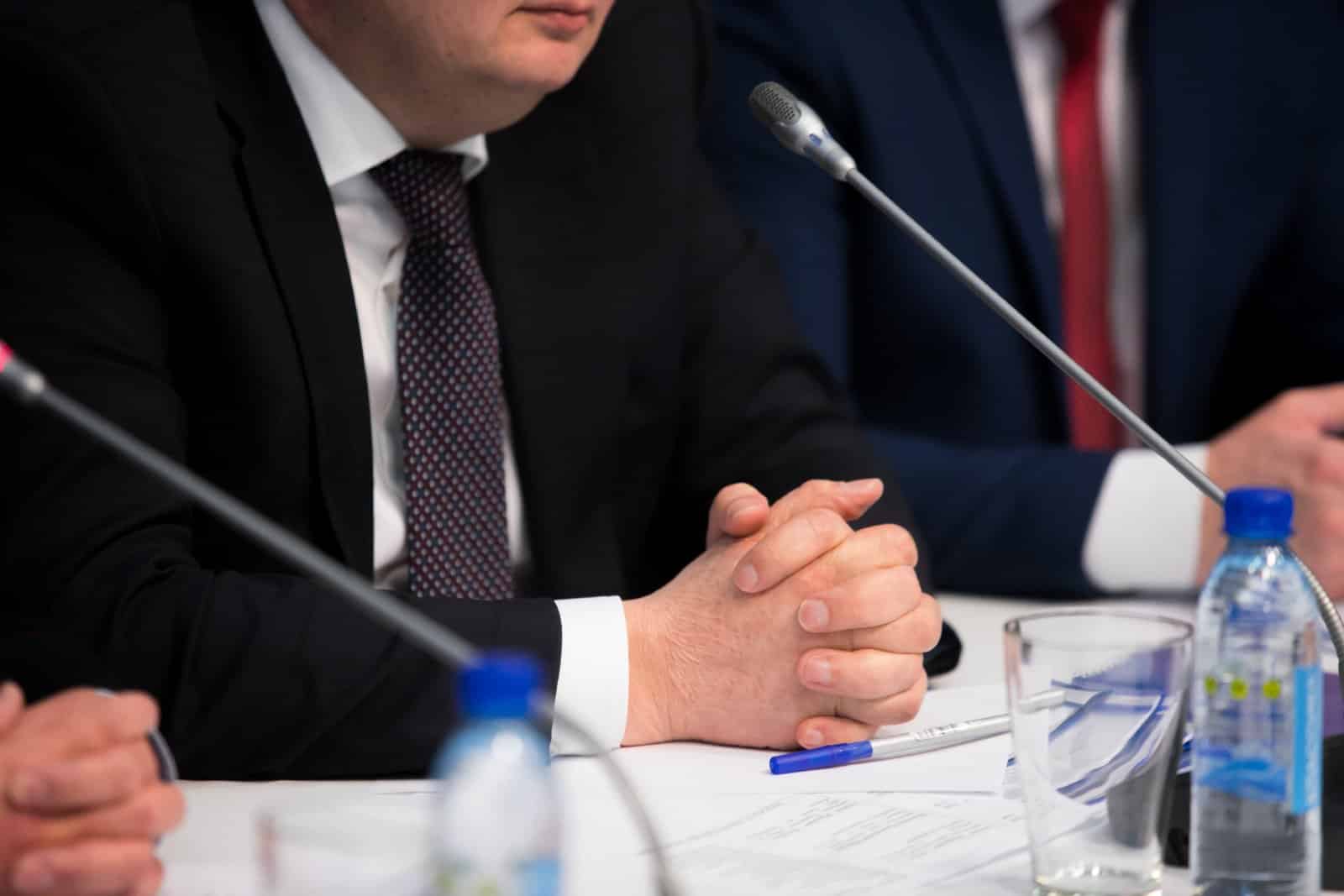
The government’s commitment to finally resolving the dispute was articulated by Prime Minister Rishi Sunak’s official spokesperson, who stated, “As we’ve said before, we’re committed to working to find a solution, resolving this dispute, but I can’t get into detailed running commentary on negotiations.
Public Honesty

They added, “We’ve been honest with the public and the sector about the economic circumstances we face. But the government is determined to do the hard work necessary to finally bring these strikes to an end.”
Brilliant News

Dr Annie Williamson, a research fellow at the Institute for Public Policy Research, hailed the agreement as “brilliant news,” adding, “An end to strikes is a crucial first step to getting the NHS back on track.”
Strain on Resources
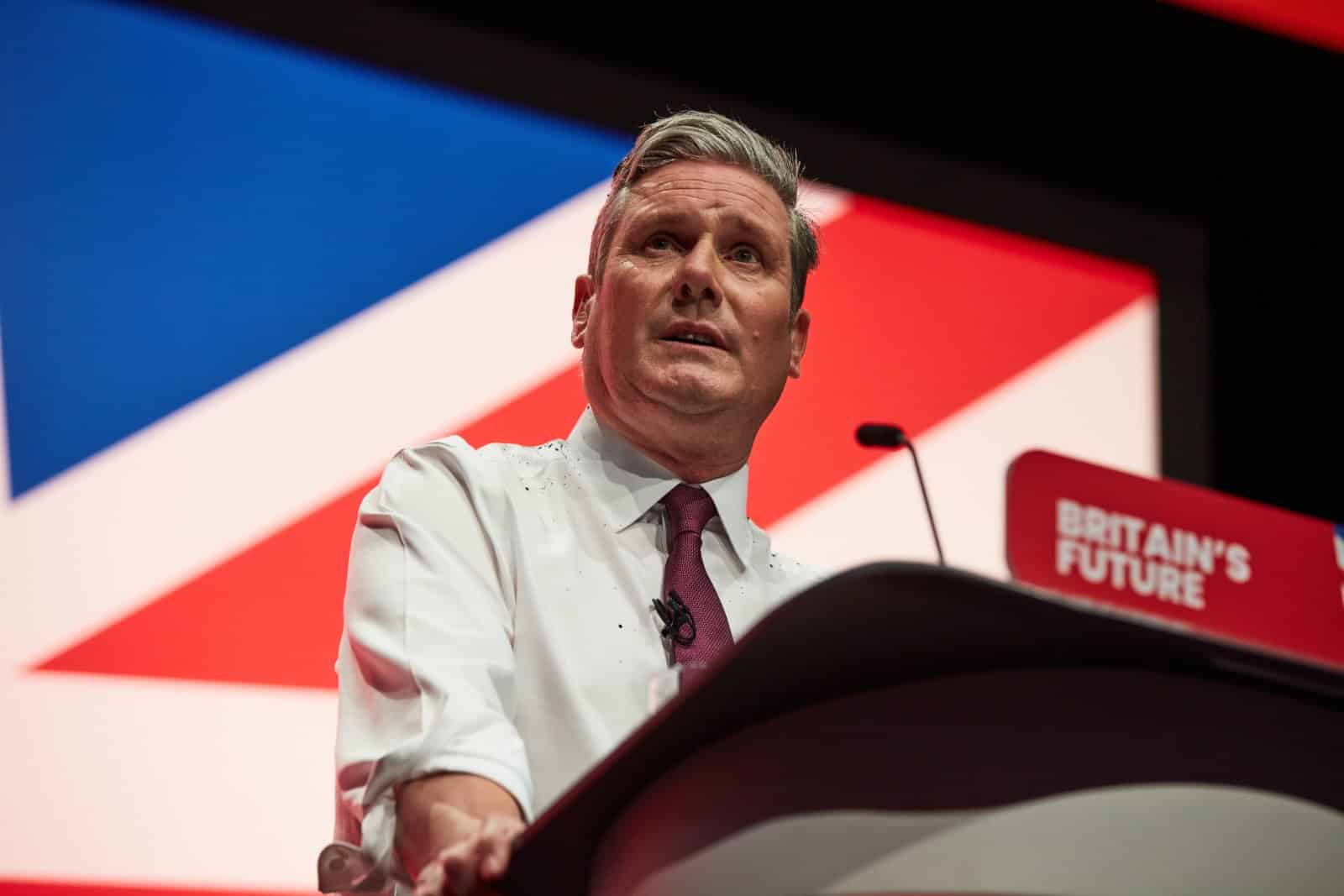
The protracted industrial action strained hospital resources and exacerbated waiting lists, which would have thrown a spanner in the works regarding the incoming Labour government’s commitment to ensure 40,000 extra appointments a week to cut down the NHS’s waiting list backlog.
Affordability of Pay Hike
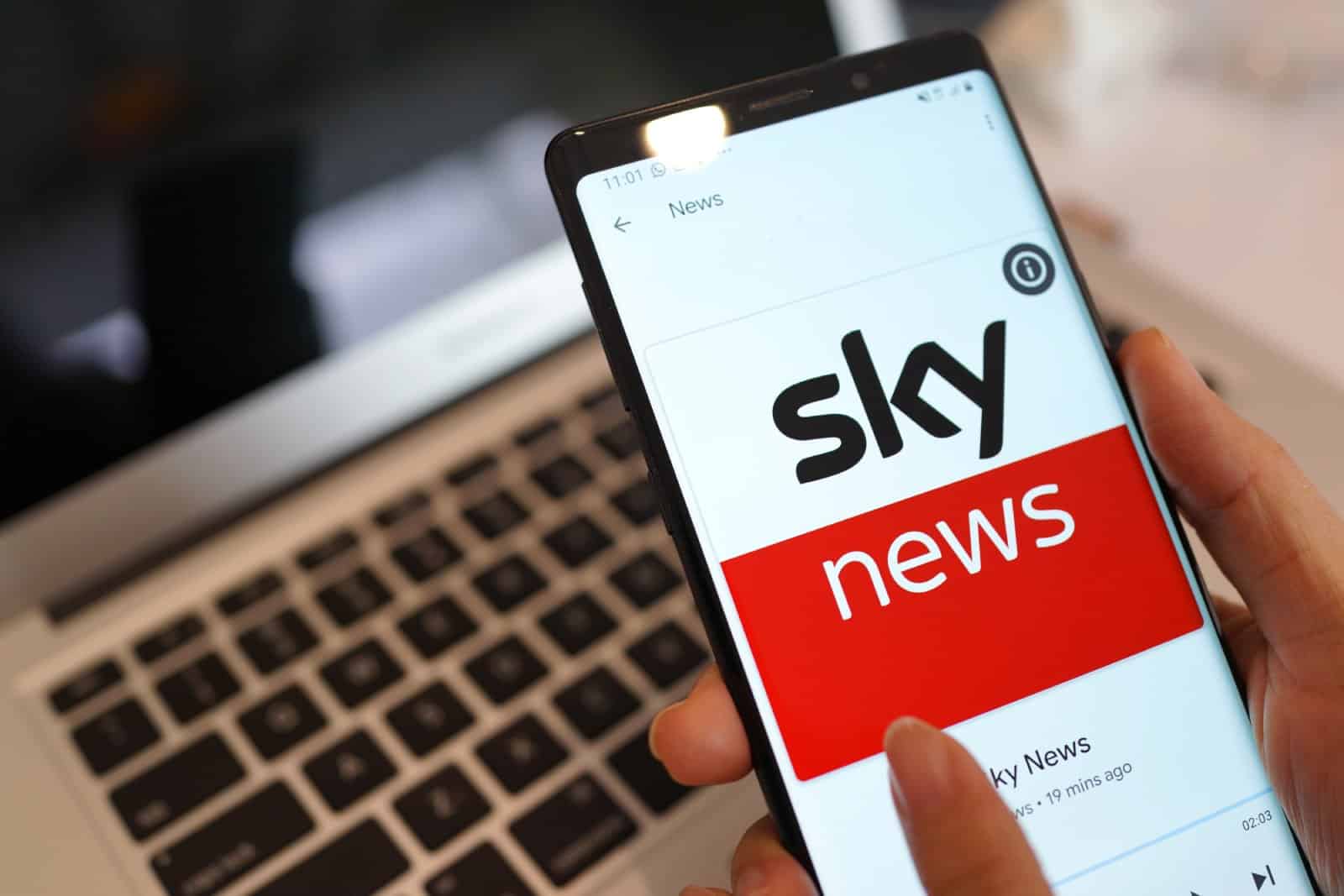
Speaking to Sky News, Vicky Pryce, Chief Economic Adviser to the Centre for Economic and Business Research, argued that the government could afford the 22.3% pay hike. She claimed that financial losses incurred due to postponed medical appointments and procedures far exceeded the cost of the proposed pay rise.
Cost of Postponements
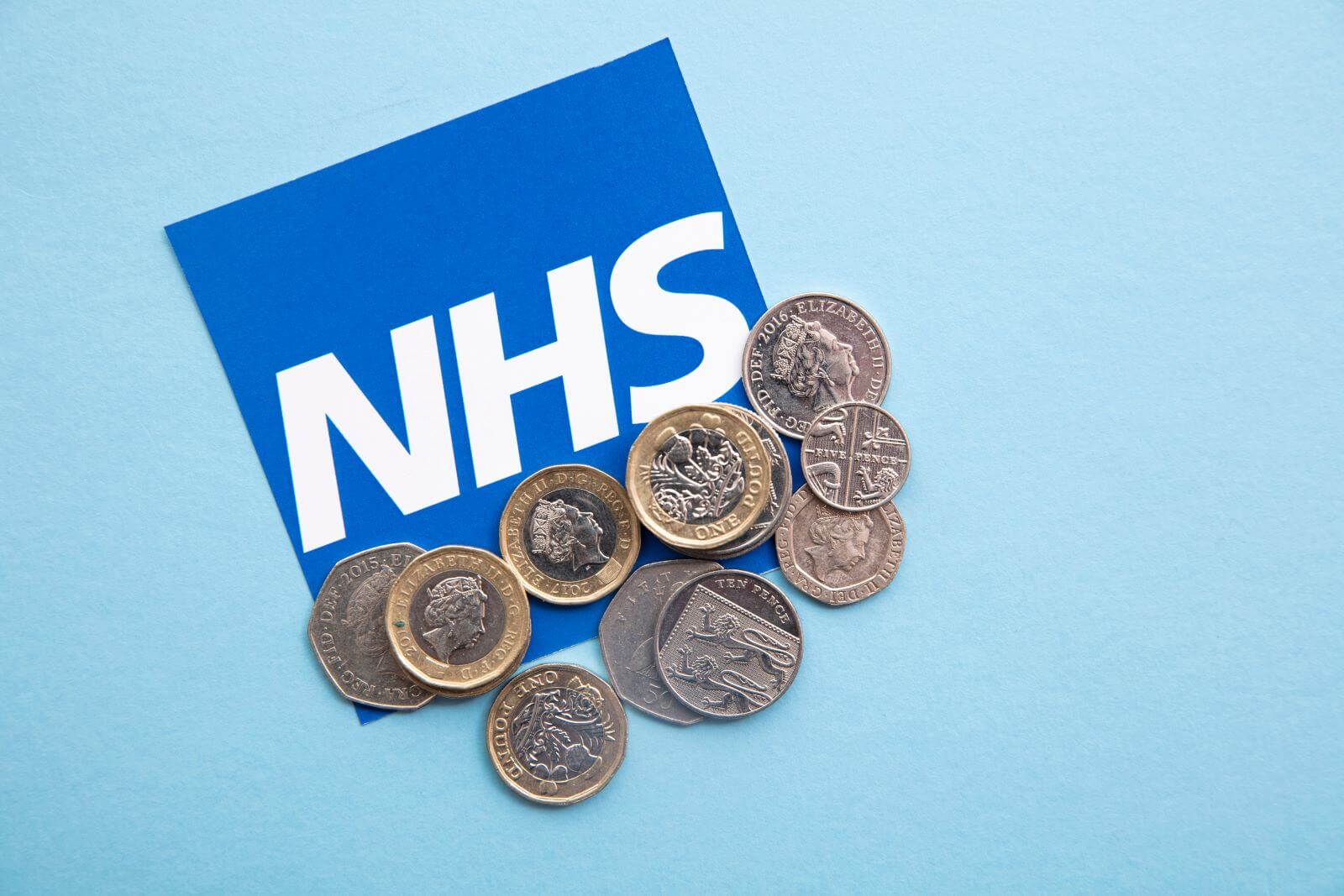
Pryce stated, “If you look at the cost to the NHS and basically to taxpayers on all those appointments that didn’t happen since December 2022, that has been added up to around £3bn anyway. So we’re much better off paying than having anything similar, sort of continuing, you know, over the next year or two. So, yes, we can afford it.”
Retaining Doctors

Resolving this dispute has been considered a critical step for the NHS to retain highly trained doctors as part of its workforce. Junior doctors have been under considerable stress, exacerbated by the pandemic and successive winter health crises. The agreement could help stem the exodus of doctors seeking better pay abroad, stabilising the workforce and improving services.
Milestone in Dispute
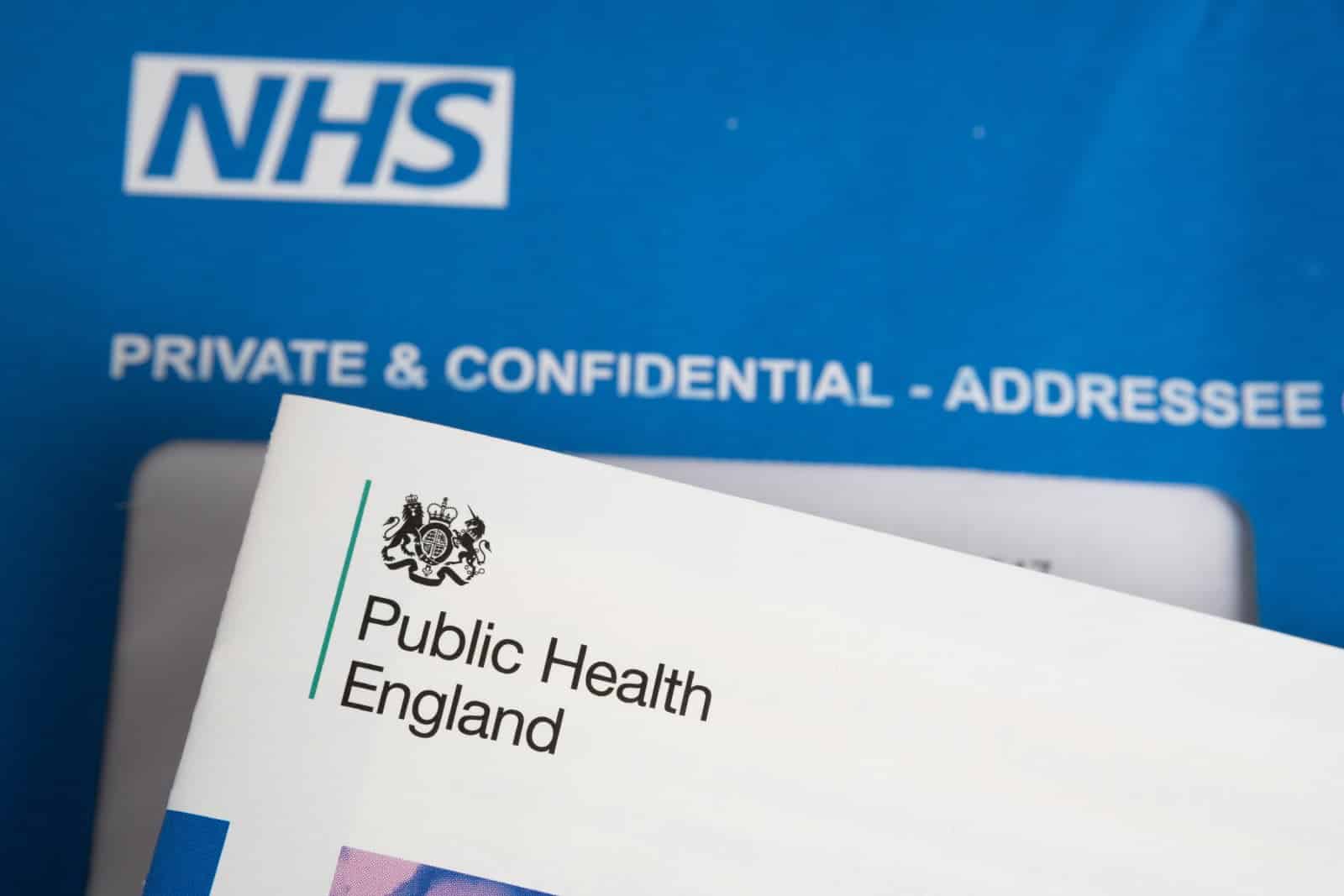
The tentative agreement between junior doctors and the government marks a significant milestone in a long-standing pay dispute. While it awaits ratification by the BMA’s junior doctors, the deal promises to restore some stability to the NHS. It demonstrates the newly elected government’s willingness to address the doctors’ concerns.
Awaiting Ratification
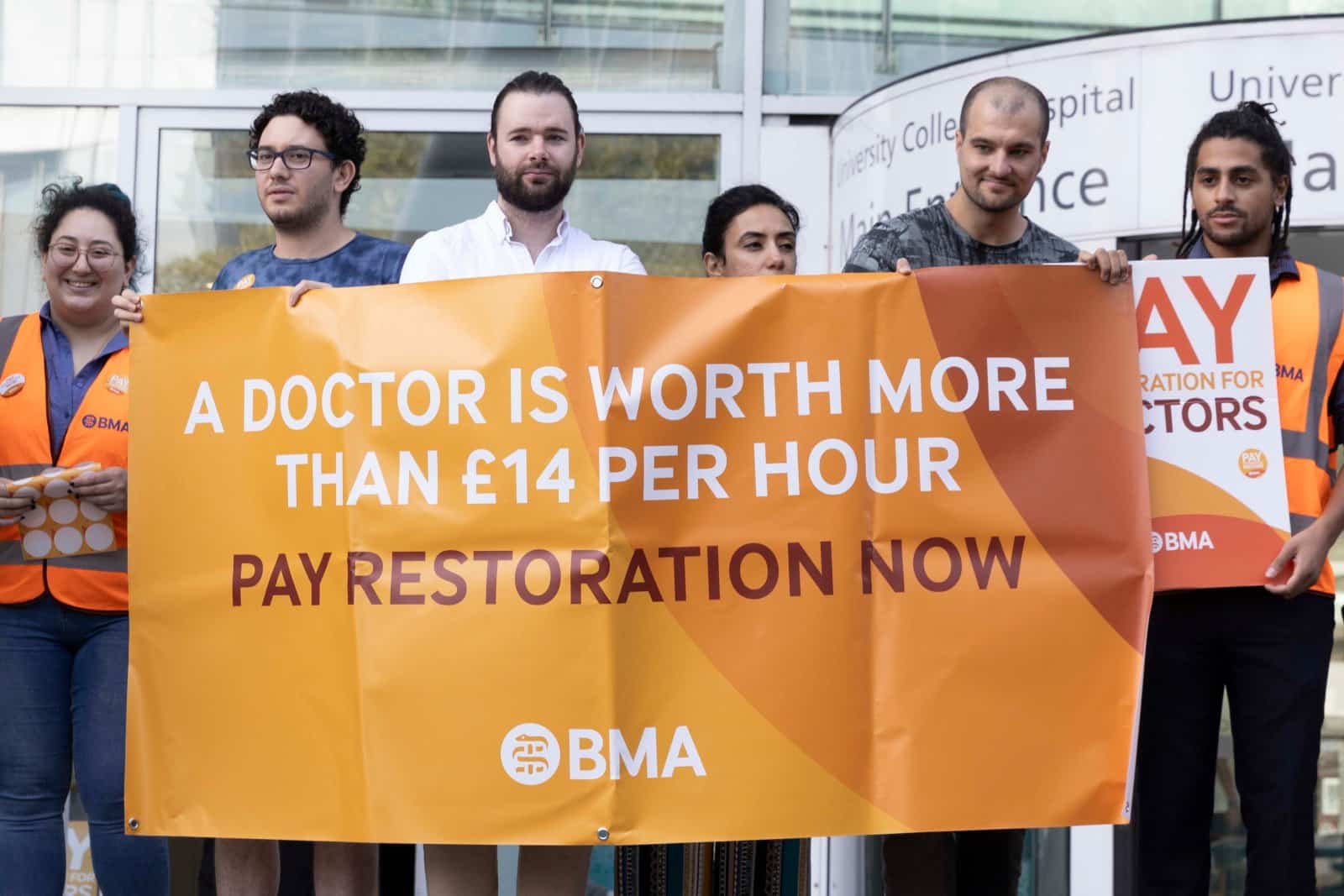
However, whether the junior doctors will accept the new pay deal remains to be seen.
10 Worst Places to Live in the UK Today

Here’s a look at the 10 worst places to live in the UK, based on statistical analysis and local sentiment, to help you understand the challenges residents may face in these areas. 10 Worst Places to Live in the UK Today
“We Will Never Come to Help You” – Trump’s Hurtful Words Raise Concerns About EU Firepower
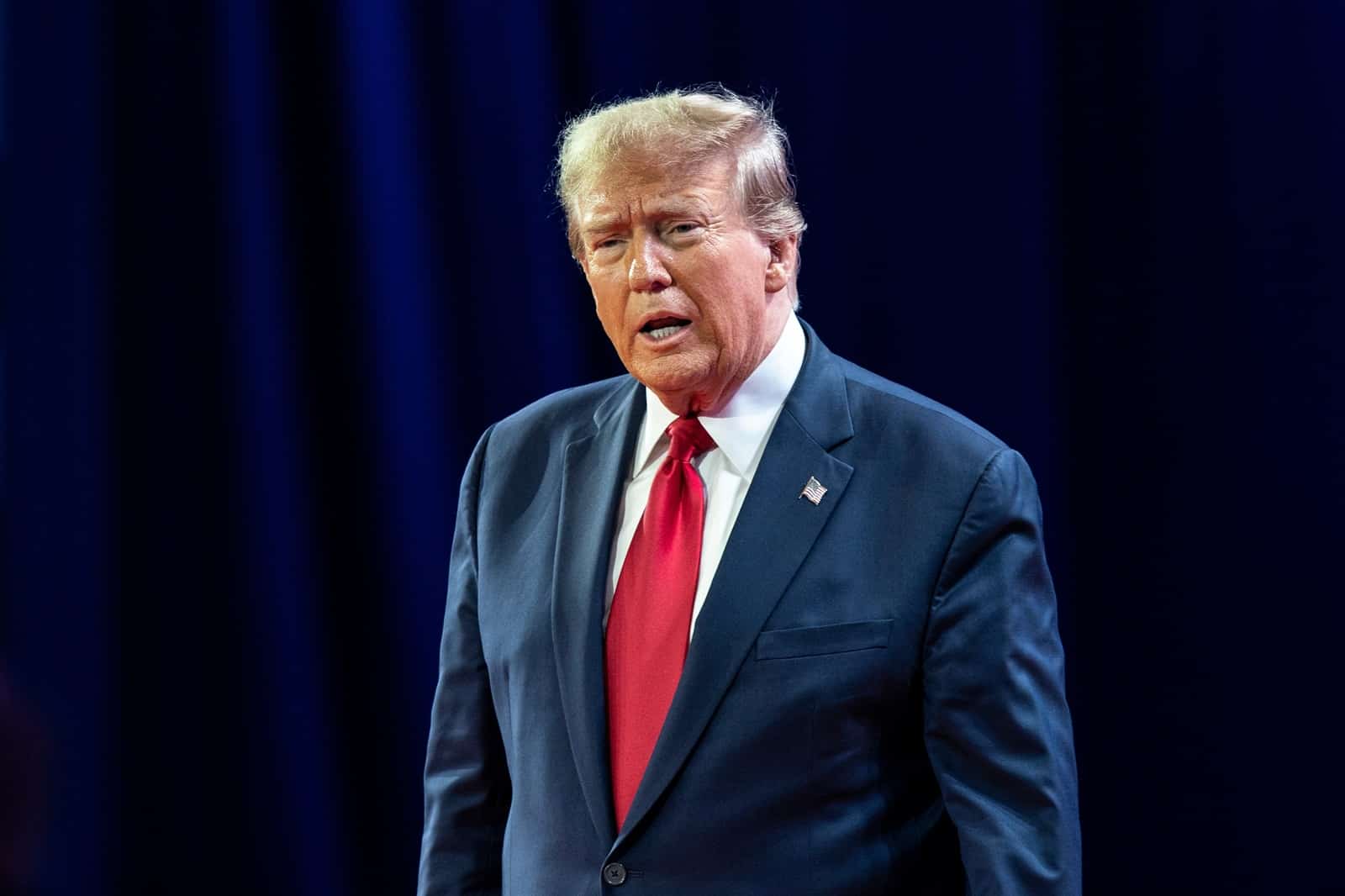
It was revealed in a conference in Brussels that former President Donald Trump said in 2020 that the US would “never help” Europe if it was attacked. Now, European nations are grouping to commit more firepower to combat Putin’s threat to democracy. “We Will Never Come to Help You” – Trump’s Hurtful Words Raise Concerns About EU Firepower
Brexit Fallout: 20 Ways the EU Is Falling Apart Without the UK
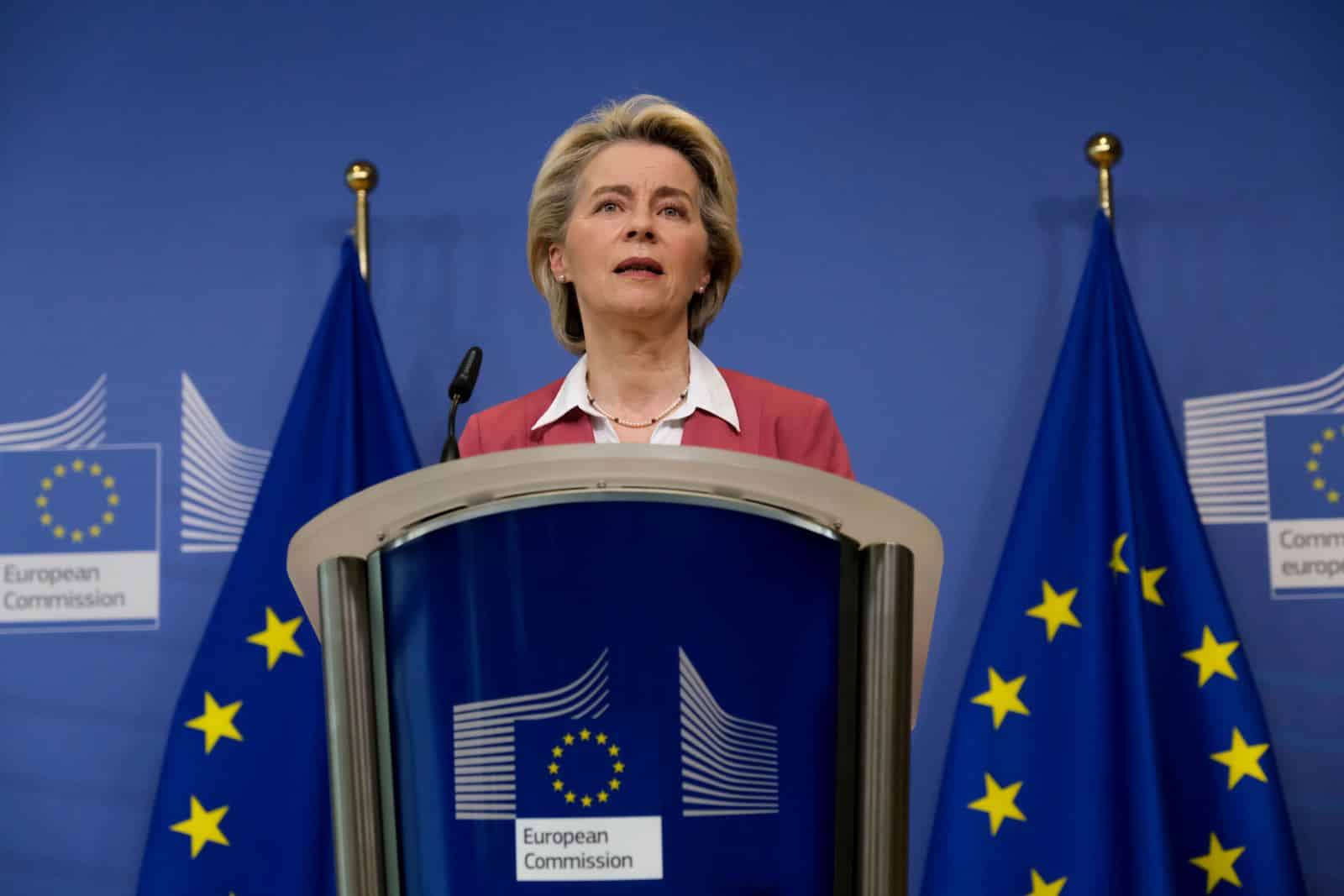
Since Brexit, the EU has been grappling with multiple crises and internal conflicts. Can the bloc hold itself together in these turbulent times? Brexit Fallout: 20 Ways the EU Is Falling Apart Without the UK
Featured Image Credit: Shutterstock / wavebreakmedia.
Grant Gallacher is a seasoned writer with expertise in politics and impactful daily news. His work, deeply rooted in addressing issues that resonate with a wide audience, showcases an unwavering commitment to bringing forth the stories that matter. He is also known for satirical writing and stand up comedy.

